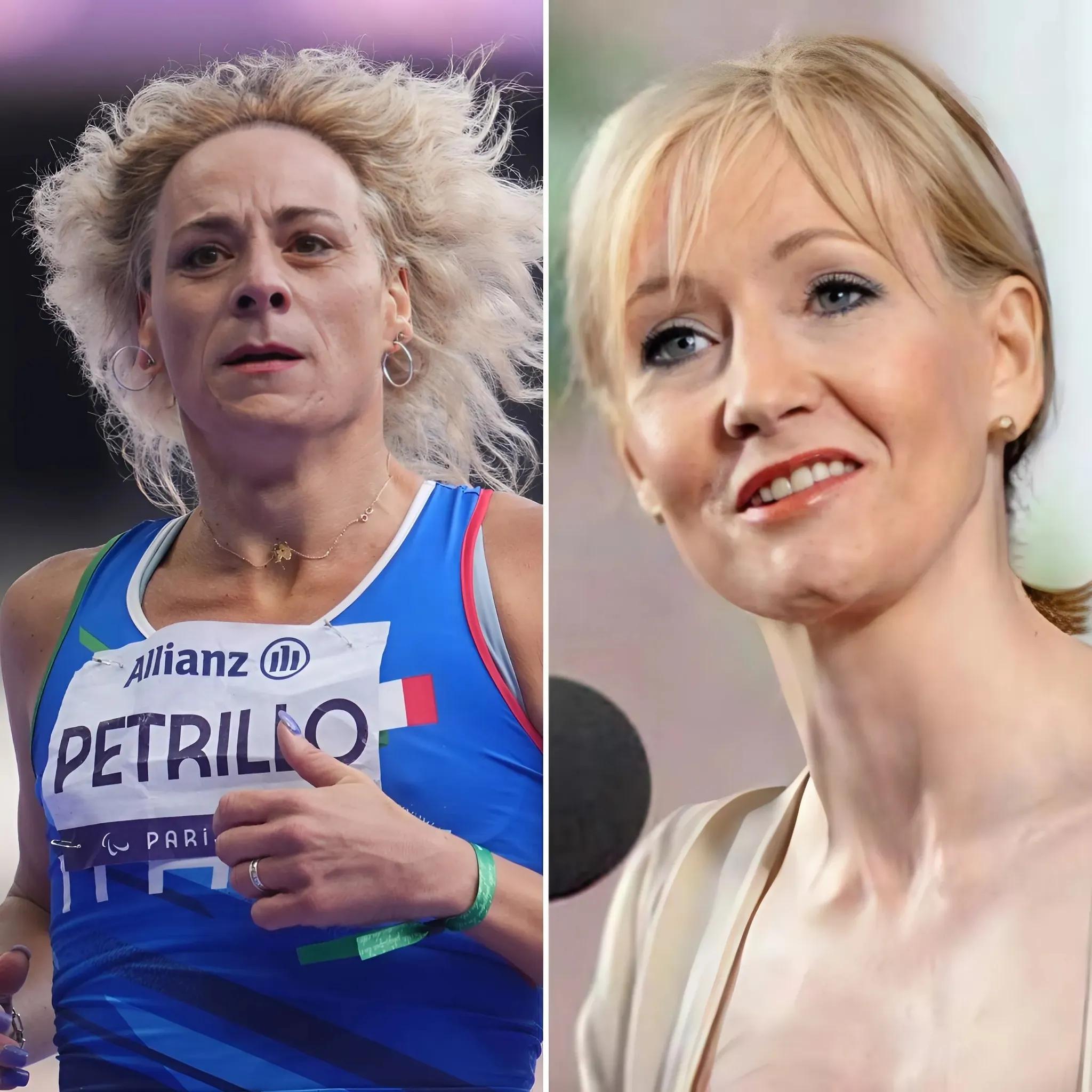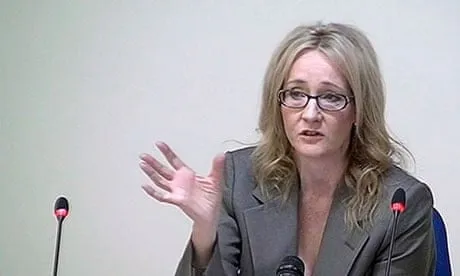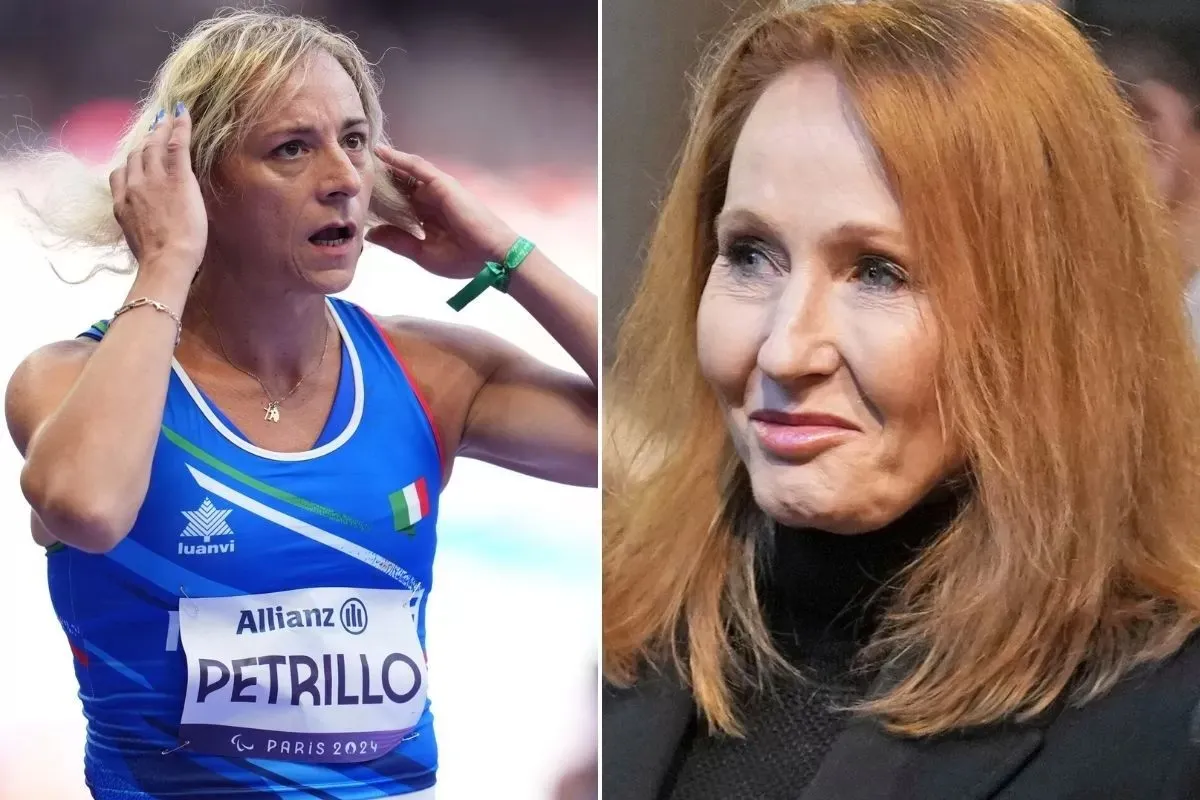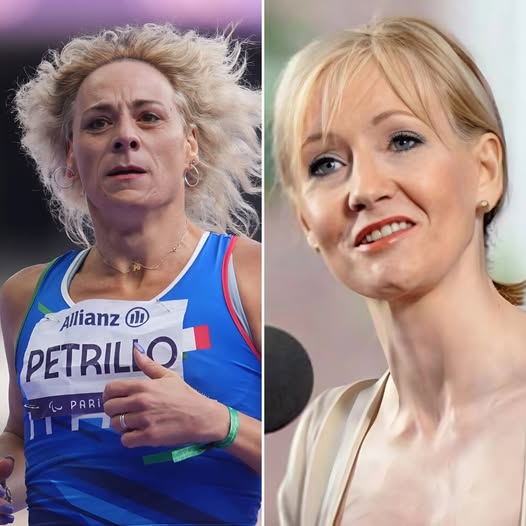A Debate Erupts as JK Rowling Calls Trans Athlete Valentina Petrillo a ‘Cheater’!!!

A heated debate has taken the internet by storm after renowned author JK Rowling labeled trans athlete Valentina Petrillo a “cheater.” The controversy centers around comments Rowling made regarding Petrillo’s participation in women’s athletics. As the debate escalates, it has sparked widespread conversations about gender identity, fairness in sports, and the limits of inclusion.
In a recent interview, JK Rowling, best known for creating the Harry Potter series, expressed her opinion on the inclusion of transgender women in women’s sports. She specifically pointed to Italian athlete Valentina Petrillo, a transgender woman who has competed in track and field events. Rowling called Petrillo a “cheater” for competing against cisgender women, claiming that biological advantages were at play.
Petrillo, who transitioned in her early 30s, has made history as one of the few openly transgender athletes in professional athletics. She has become a symbol for many in the LGBTQ+ community, advocating for inclusion and fair treatment. However, Rowling’s comments have ignited a firestorm of criticism and support, dividing fans, athletes, and pundits alike.
Supporters of Rowling argue that trans women may hold inherent physical advantages in certain sports, leading to an unfair competitive edge. They cite concerns about hormonal differences, muscle mass, and endurance that may not be fully mitigated by hormone replacement therapy (HRT) alone. Critics of this view, however, stress that the inclusion of transgender athletes is about equity and creating a level playing field in sports for everyone, regardless of gender identity.
On the other hand, LGBTQ+ advocates have condemned Rowling’s remarks, accusing her of transphobia and perpetuating harmful stereotypes. Petrillo, responding to the controversy, has stated that her participation in athletics is an important step toward achieving equality in sports and society. She further emphasized that her performance is not about “cheating” but about competing fairly and within the rules set by governing bodies like the International Olympic Committee (IOC), which allows transgender athletes to participate in women’s events if their testosterone levels are below a certain threshold.
The debate surrounding transgender athletes like Petrillo highlights the tension between inclusion and fairness in sports. As more transgender athletes come forward, sports organizations are grappling with how to create policies that balance the rights of transgender individuals while maintaining a competitive, fair environment. The World Athletics, for example, has put forth guidelines requiring trans women to meet certain testosterone limits to compete in women’s events.

This controversy is not isolated to track and field; similar debates have unfolded in other sports, such as swimming and rugby. In many cases, athletes, fans, and experts remain divided over where to draw the line between inclusivity and fairness.
The debate over trans women in sports is far from over, and JK Rowling’s comments on Valentina Petrillo have only served to deepen the divide. While Rowling’s views resonate with some, they have caused considerable backlash from the LGBTQ+ community and its allies. As the conversation continues, it is clear that the path forward will require careful consideration of both the science and the values of fairness and inclusion in sports.
As this debate unfolds, it’s evident that the world of sports will need to navigate these complex issues thoughtfully and inclusively, ensuring that everyone—regardless of their gender identity—has a fair chance to compete.
